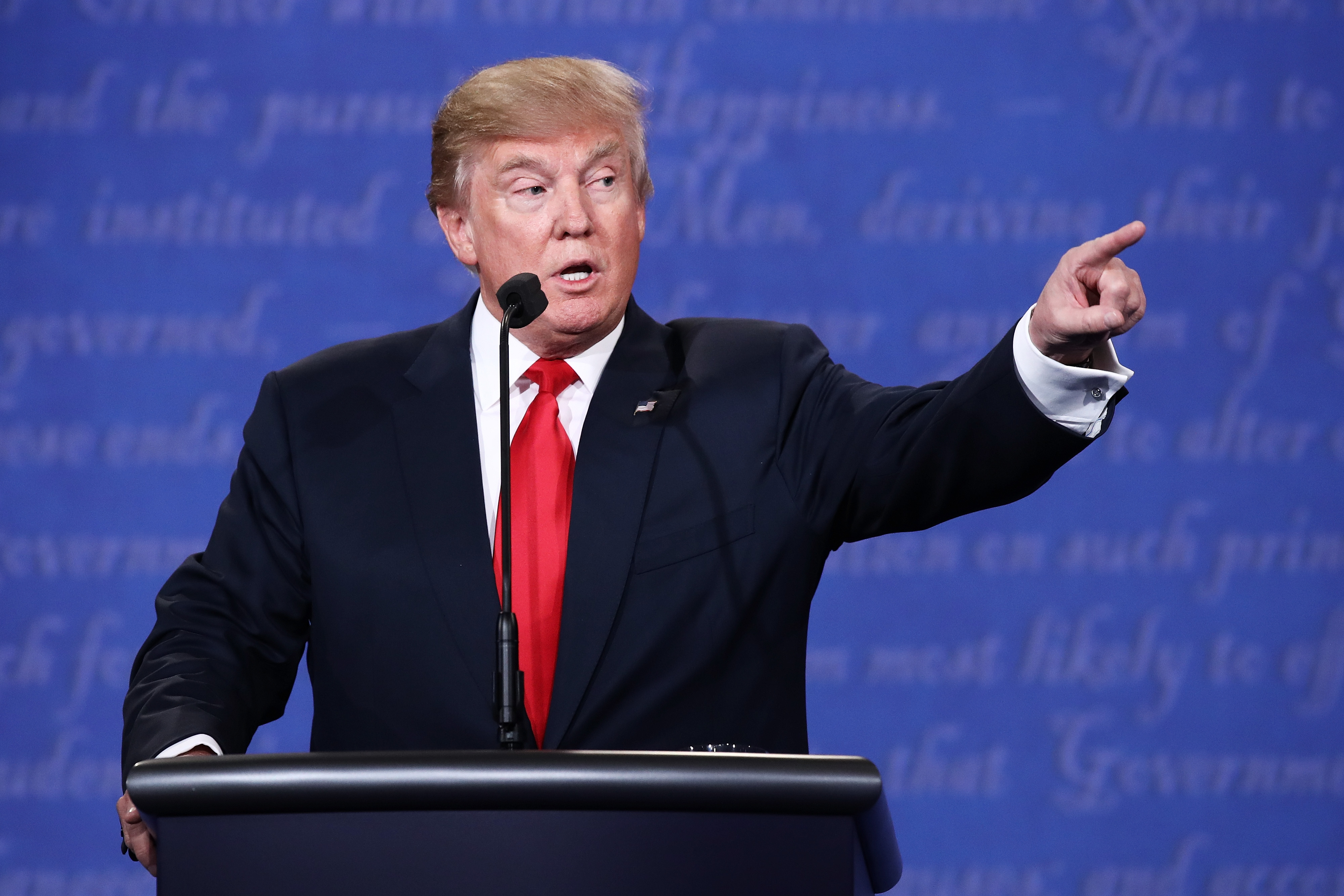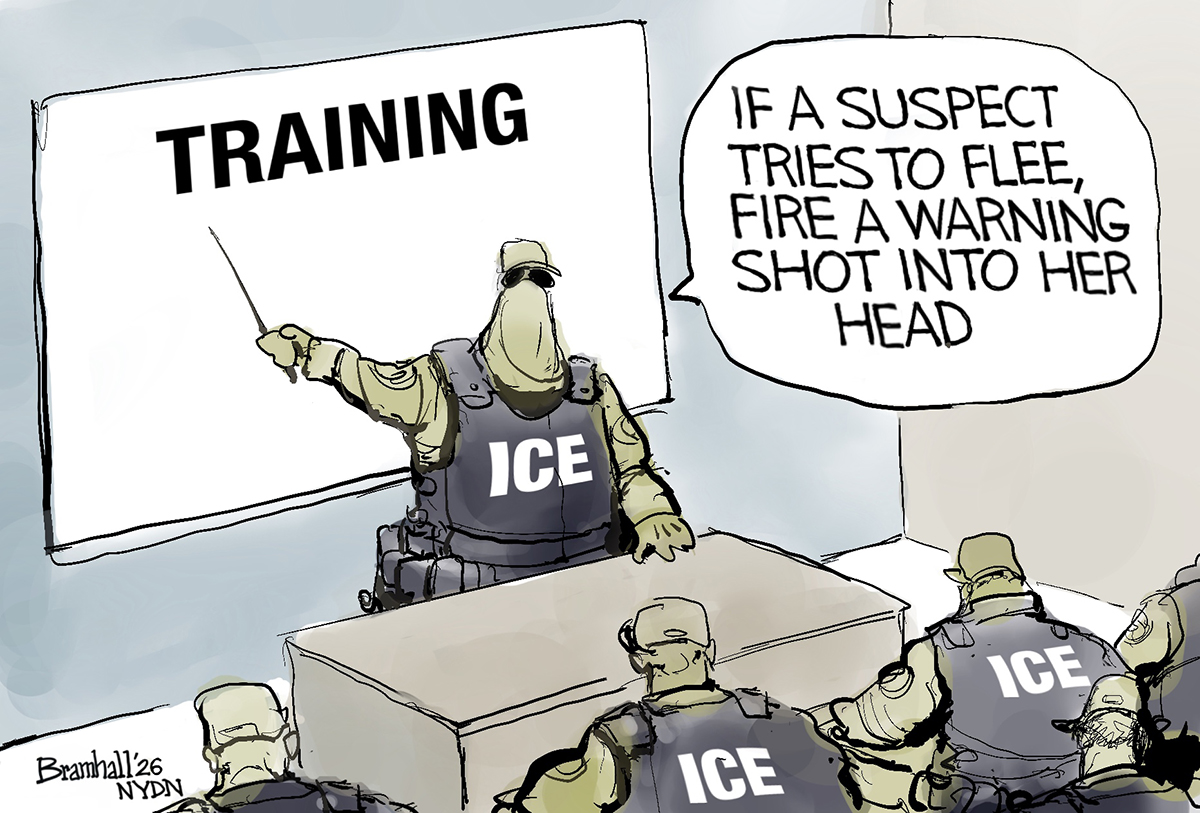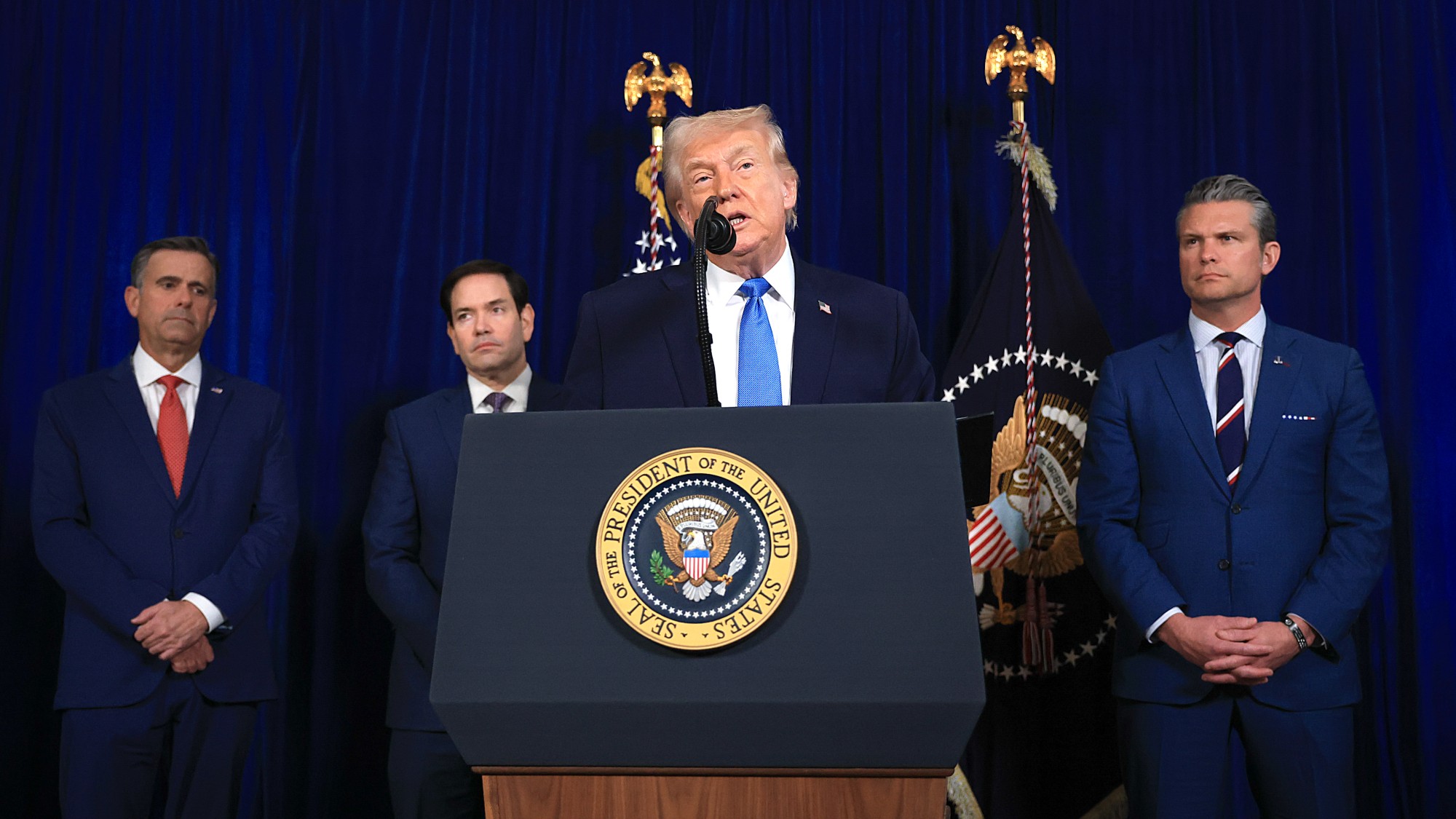Why the U.S. military should be worried about Donald Trump's revolution threats
In the final presidential debate, Trump refused to say he would abide by the basic norms of democracy


During the final presidential debate on Wednesday night, moderator Chris Wallace asked Donald Trump about his constant assertions that Hillary Clinton is rigging the election. In America, there is a tradition of a "peaceful transition of power, and that no matter how hard-fought a campaign is, that at the end of the campaign, the loser concedes to the winner," Wallace said. "Are you saying you're not prepared now to commit to that principle?"
"What I'm saying is that I'll tell you at the time. I'll keep you in suspense," Trump replied. It fit right in with an earlier comment that Clinton should not have been allowed to run in the first place.
For even a passing student of history, the meaning of this is plain: Trump is toying with the idea of attempting to overthrow the American state by force. It's a stunningly irresponsible thing for a presidential candidate to say. And while such a possibility is a long shot, the U.S. military should probably make some preparations to defend the American state against armed sedition.
The Week
Escape your echo chamber. Get the facts behind the news, plus analysis from multiple perspectives.

Sign up for The Week's Free Newsletters
From our morning news briefing to a weekly Good News Newsletter, get the best of The Week delivered directly to your inbox.
From our morning news briefing to a weekly Good News Newsletter, get the best of The Week delivered directly to your inbox.
A democracy is a system by which the control of the state is awarded via an election. The easy and visibly legitimate process to transfer power is one of the great advantages of such a system. Instead of some Byzantine jostling among whatever heirs some inbred monarch happens to produce, which ends in "bigger army diplomacy" about half the time, you have an election and whoever gets the most votes gets to govern.
But critically, such a system depends on broadly accepted democratic norms throughout both the general population and the elite class. If the electoral system is not accepted as legitimate, or the political results of the election are resisted fiercely enough by a big enough slice of the population, the result is often violence. Stealing an election, as happened in Iran in 2009, almost always leaves an obvious paper trail. Resulting mass protests can easily turn violent, or be suppressed by violence.
Going up the scale of political violence, disgruntled factions can flee to remote areas and attempt guerrilla war. Colombia, for example, has seen a brushfire civil war between leftist guerrillas on one side and the government and right-wing paramilitaries on the other, for the last five decades. Worst of all is organized civil war. The election of Abraham Lincoln to the presidency in 1860, for example, inspired such a fury to protect and expand slavery among Southern conservatives that they broke the country in half for a time and made open war upon the legitimate United States government.
I spell all this out to drive home the immense potential danger of Trump's comments. His assertions about election fraud and Clinton's supposed criminality are either conspiracy derp or outright fabrications, obviously a psychological defense mechanism to avoid having to admit loss. In the 2012 election, he also claimed that the election was a "total sham," that "we should march on Washington" and "have a revolution." Who can say what the 40-60 million Trump voters might do if he tries to incite rebellion? The federal government must prepare for worst.
A free daily email with the biggest news stories of the day – and the best features from TheWeek.com
Of course, it seems all but certain that Trump will not actually retreat to the mountains of West Virginia and start arming insurgents for a campaign against Washington. But the democratic institutions of the United States are already visibly rickety. Trump's conspiracy-mongering will only erode them further. Literally every single other U.S.-style presidential democracy has collapsed, and most of those involved the military in some way. The very thought of the armed forces having to involve themselves in politics is only a short step from the generals choosing who will govern.
For the sake of our democracy, let's hope Trump loses by a spectacular, humiliating margin.
Ryan Cooper is a national correspondent at TheWeek.com. His work has appeared in the Washington Monthly, The New Republic, and the Washington Post.
-
 Political cartoons for January 10
Political cartoons for January 10Cartoons Saturday’s political cartoons include a warning shot, a shakedown, and more
-
 Courgette and leek ijeh (Arabic frittata) recipe
Courgette and leek ijeh (Arabic frittata) recipeThe Week Recommends Soft leeks, tender courgette, and fragrant spices make a crisp frittata
-
 Trump’s power grab: the start of a new world order?
Trump’s power grab: the start of a new world order?Talking Point Following the capture of Nicolás Maduro, the US president has shown that arguably power, not ‘international law’, is the ultimate guarantor of security
-
 The billionaires’ wealth tax: a catastrophe for California?
The billionaires’ wealth tax: a catastrophe for California?Talking Point Peter Thiel and Larry Page preparing to change state residency
-
 Bari Weiss’ ‘60 Minutes’ scandal is about more than one report
Bari Weiss’ ‘60 Minutes’ scandal is about more than one reportIN THE SPOTLIGHT By blocking an approved segment on a controversial prison holding US deportees in El Salvador, the editor-in-chief of CBS News has become the main story
-
 Has Zohran Mamdani shown the Democrats how to win again?
Has Zohran Mamdani shown the Democrats how to win again?Today’s Big Question New York City mayoral election touted as victory for left-wing populists but moderate centrist wins elsewhere present more complex path for Democratic Party
-
 Millions turn out for anti-Trump ‘No Kings’ rallies
Millions turn out for anti-Trump ‘No Kings’ ralliesSpeed Read An estimated 7 million people participated, 2 million more than at the first ‘No Kings’ protest in June
-
 Ghislaine Maxwell: angling for a Trump pardon
Ghislaine Maxwell: angling for a Trump pardonTalking Point Convicted sex trafficker's testimony could shed new light on president's links to Jeffrey Epstein
-
 The last words and final moments of 40 presidents
The last words and final moments of 40 presidentsThe Explainer Some are eloquent quotes worthy of the holders of the highest office in the nation, and others... aren't
-
 The JFK files: the truth at last?
The JFK files: the truth at last?In The Spotlight More than 64,000 previously classified documents relating the 1963 assassination of John F. Kennedy have been released by the Trump administration
-
 'Seriously, not literally': how should the world take Donald Trump?
'Seriously, not literally': how should the world take Donald Trump?Today's big question White House rhetoric and reality look likely to become increasingly blurred
